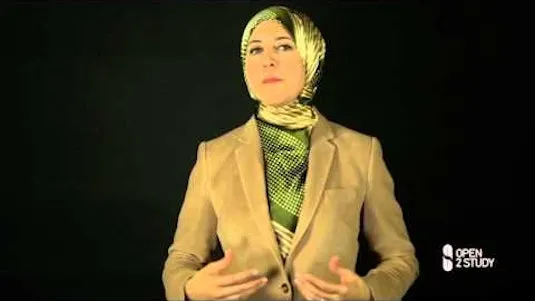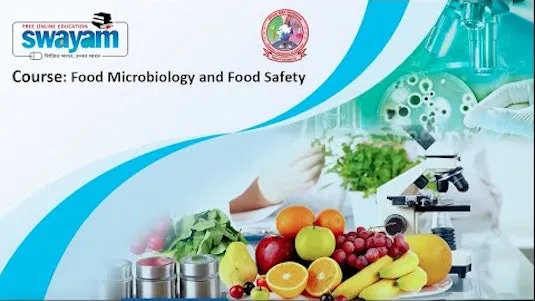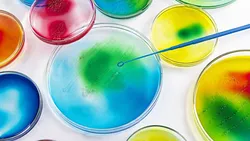Free Online Microbiology Courses and Certifications 2024
Microbiology is the study of microscopic organisms, such as bacteria, viruses, fungi, and protozoa. It is a field of science that is relevant to many areas, such as medicine, agriculture, and biotechnology. People interested in this field may pursue courses in biology, biochemistry, and genetics. Microbiologists may work in research, clinical, or industrial settings.
Popular Courses
Gain an introduction to Microbiology and Forensic Science
Learn MoreThis course provides an overview of food microbiology and food safety, covering topics such as important genera of microorganisms associated with food, techniques for enumeration and control of microorganisms, food spoilage, food fermentation, foodborne diseases, food safety rules and regulations, and food safety management systems. Learners will gain essential knowledge and applications of various techniques for preserving food and ensuring food safety and hygiene.
Learn MoreNursing students in their first year of BSc Nursing are introduced to the history and relevance of Microbiology in their course. Shubam Sir teaches them the principles of Microbiology and how it is applicable to their field. This course provides a comprehensive overview of the subject and its importance in the nursing profession.
Learn MoreThis chapter of Microbiology with Diseases by Taxonomy covers the history of microbiology, cell structure and function, microscopy and staining, and microbial metabolism. It provides an overview of the development of the field of microbiology, as well as the tools and techniques used to study microorganisms. It also examines the metabolic processes of microorganisms and how they interact with their environment.
Learn MoreThis course covers the scope and impact of microbiology on human use, including infectious diseases caused by microorganisms, historical foundations, and the naming, classifying, and evolution of microorganisms. It also explores the bonds and molecules of microorganisms, as well as culturing, staining, and microscopy techniques.
Learn MoreThis video series provides an introduction to the field of microbiology, covering topics such as eukaryotes, protozoa, and microorganisms. It explains the different types of fungi and microbes, as well as their definitions and characteristics. It also explores the concept of microorganisms and their role in the environment. The videos provide a comprehensive overview of the field of microbiology.
Learn MoreThis Microbiology Summer Course provides an introduction to the microbes, their history, and the science of microscopy. It covers four topics: Intro to the Microbes, History of Microbiology, Science of Microscopy, and Microbial Diversity. Students will gain a comprehensive understanding of the field of microbiology.
Learn MoreThis course covers the fundamentals of general microbiology, including bacterial nomenclature, prokaryotic and eukaryotic cells, phage viruses versus animal viruses, duration of illness, latent, three domains of life, antibiotics part two, bacterial structure part one, and chemical methods. Students will gain a comprehensive understanding of the fundamentals of microbiology.
Learn MoreThis course provides an overview of the different types of microorganisms, including bacteria, viruses, fungi, prions, and paramecia. It covers topics such as bacterial classification by shape, the differences between gram positive and gram negative bacteria, and the structure of paramecia. Additionally, it explores fungal hyphae, including septate, coencytic, and pseudohyphae, as well as prions.
Learn MoreThis course covers a range of microbiology diagnostic tests, including the Disk Diffusion Test, Coagulase Test, Catalase Test, Oxidase Test, DNAse Test, Citrate Test, Lecithinase Test, Indole Test, Hippurate Hydrolysis Test, Lipase Test, Acidic and Basic Stains, Gram Stain, Acid-Fast Stain, Endospore Stain, Capsule Stain, Flagella Stain, Snyder Test Agar, Cytopathic Effects, Mannitol Salt Agar, Eosin Methylene Blue Agar, MacConkey Agar, Eijkman Test, Bile Esculin Agar, XLD Agar, Quadrant Streak, and Axenic Culture.
Learn MoreThis course provides students with the practical skills needed to pass their Microbiology Lab. It covers topics such as stains and biochemical tests, and is tailored to AP Biology, MCAT, and NEET students. The videos provide step-by-step instructions on how to apply these skills in the lab.
Learn MoreThis course, Shomu's General Microbiology (SGM), covers topics related to food microbiology, such as food processing, food poisoning, food borne infection, fermented foods, and food production. It provides an overview of the various aspects of food microbiology and how they can affect food safety.
Learn MoreThis course covers the fundamentals of Industrial Microbiology, including enzyme immobilization physical methods, enzyme entrapment, covalent binding, and various types of bioreactors. It also covers topics such as growth curves, batch culture, continuous culture, and fed batch fermentation.
Learn MoreThis non-major biology lecture series covers the fundamentals of chemistry, cellular respiration, cell structure, cell membrane, photosynthesis, and metabolism. It provides an introduction to the basics of biology and how the different components of cells interact with each other. It also explains how energy is produced and used in cells.
Learn MoreExplore the essentials of Microbiology Textbook
Learn MoreGet a comprehensive overview of Intro to Microbiology
Learn More Microbiology Courses
Career Trends
Career Prospects
| Average Salary | Position Overview
|
| Clinical Laboratory Scientist | $26.25 per hour
| A clincial laboratory scientist (MLS), also referred to as a medical technologist or clinical laboratory scientist, analyzes various biological specimens. They are accountable for conducting scientific tests on samples and communicating the findings to physicians. |
| Microbiology Technologist | $79,297 per year | Microbiology technologists examine and identify bacteria and other microorganisms. Typically, an entry-level position in this field requires a bachelor's degree in medical technology or life sciences. It is worth noting that the average growth rate for all occupations is 7 percent. |
| Postdoctoral Researcher | $57,247 per year | A postdoc fellowship is a training-focused position available to people who have earned a doctorate. Postdoc positions usually act as a stepping-stone between the student experience and the full-time professional experience. |
| Microbiology Technicians | $26.92 per hour | Microbiology technicians aid microbiologists in identifying microorganisms, including bacteria, present in samples of water, blood, or other substances. They support the implementation of experiments by maintaining and preparing equipment such as test tubes, as well as collecting specimen samples for analysis. |
Educational Paths
1. Bachelor's degree in Microbiology or a related field such as Biology, Biochemistry, or Genetics
2. Master's degree in Microbiology or a related field
3. PhD in Microbiology or a related field
4. Certificate programs in specific areas of microbiology, such as clinical microbiology or food microbiology
Frequently Asked Questions and Answers
Q1: What are the best schools for Microbiology?
For those looking for the best schools for Microbiology, three top choices are Johns Hopkins University (JHU) in Baltimore, MD, Stanford University (SU) in Palo Alto, CA, and University of Wisconsin (UW) in Madison. JHU was ranked #1 for best regional hospitals in Maryland and Baltimore in 2019, while Stanford's graduate program for biological sciences took first place in the U.S. UW is also a great choice, offering a wide range of courses and research opportunities in the field of Microbiology.
Q2: Can I take microbiology online?
Yes, you can take microbiology online! There are a variety of free online courses available that can be completed at your own pace, though they do not offer academic credit. For those looking for an online option that can be applied to a degree program, Study.com offers a Biology 103: Microbiology course that can be taken online.
Q3: Is microbiology a hard class?
If you are not fond of extensive research, you will face challenges in the field of microbiology. This discipline heavily relies on research to support your practical skills, which are crucial for excelling in nursing school and in real-world scenarios. Regrettably, visualizing anything becomes a challenge as you need to examine everything under a microscope.
Q4: What are the 3 types of microbiology?
Bacteriology is the field dedicated to the examination and understanding of bacteria. Immunology, on the other hand, focuses on comprehending the immune system and its interactions with pathogens like bacteria and viruses within their respective hosts. Mycology, yet another branch of study, delves into the exploration of fungi, including yeasts and molds.
Q5: What Microbiology courses can I find on AZ Class?
On this page, we have collected free or certified 89 Microbiology online courses from various platforms. The list currently only displays up to 50 items. If you have other needs, please contact us.
Q6: Can I learn Microbiology for free?
Yes, If you don’t know Microbiology, we recommend that you try free online courses, some of which offer certification (please refer to the latest list on the webpage as the standard). Wish you a good online learning experience!
















